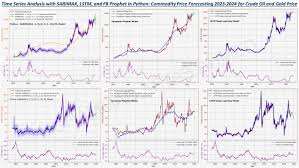Course
Objectives:
Facing the
dilemma between resource shortage and environment destruction, numerous
researches have been initiated within the field of Oil & Gas study.
The analysis
of Oil & Gas scenarios for future energy systems requires appropriate
historical data. However, while more or less detailed data on energy production
is often available, appropriate data on energy consumption is often scarce.
Time series
analysis in the oil and gas sector involves systematically recording data
points at regular intervals over a specified timeframe. This structured
approach enables analysts to uncover trends, patterns, and variations in
critical parameters, such as production volumes and exploration results. By
studying the temporal evolution of key variables, professionals can make
informed decisions, predict future trends, and optimize operational strategies
for greater Oil & Gas efficiency and profitability.
Learning
Objectives:
· Creates the opportunity to clean your
data
· Time Series Forecasting Can Predict
the Future
· Time series analysis helps you
identify platforms
· You can make the future performance
of Oil estimations
· Helps you to detect anomalies in your problems
Prerequisites:
· Will teach from scratch, so no
prerequisites as such are required
· Having knowledge of data
visualization, graphs, and charts will be an added advantage.
Topics
to Be covered:
Introduction
to time series data, and how it is different from normal data. We are already
doing forecasting in our real life.
Mathematics
and Statistics relevant to forecasting
· Lag features
· Algebra, Calculus
· Outlier Removal
Terminology
of Time Series
· Ts objects, Time plots &
Seasonality
· Periodicity & Trend
· White Noise
· Unit root & Smoothening
Introductory
signal analysis
· Fourier Transforms: Taking time
series
· data into frequency domain
· Recursion Plots
· Which spike is and anomaly
Getting
Deeper into time series
· Differencing
· ACF and PACF
· Hypothetical tests
· Time series Data Analysis
Thinking of
time series problem as a regression problem
Statistical
Models
§ Auto Regression
§ Moving Average
§ ARIMA
Deep
Learning for time series
§ RNN
§ LSTM
Advanced
(Optional)
§ Anomaly detection using Auto
§ Encoders & Isolation Forest
Frequently
Asked Questions (FAQs):
Why to
join this Course?
ü Practical Oriented Knowledge
ü Experienced Digital Experts
ü Flexible Learning Model with recorded
lectures
ü Certificate of Completion
ü Project of Completion
What if I
don't have any prior coding experience? Can I still join this course?
ü Don't worry, we'll start from
scratch. There is no requirement for prior experience.
Will
joining this program be beneficial to me because I am proficient in Python?
ü This might help you readily
comprehend the data science ideas underpinning oil and gas applications.
ü You will receive many data sets for
practice and analysis
Will I
get a certificate?
Yes, you
will receive a 5-week training certificate upon completion of the programme.
Will
there be an assignment?
ü Yes, we'll have assignment on weekly
basis and final project at end of the program.
Who can
join this course?
ü Undergraduate/Graduate or
professional working in energy sector.


